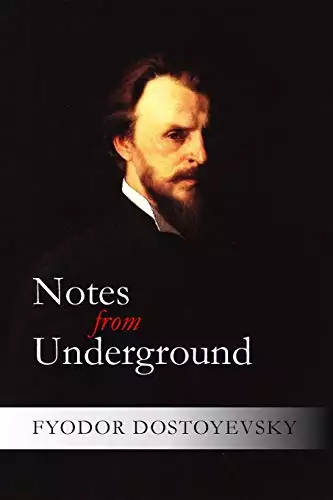
Notes from the Underground
- eBook
- Paperback
- Audiobook
- Hardcover
Synopsis
Notes from the Underground by Fyodor Dostoyevsky - also translated as Notes from the Underground or Letters from the Underworld) is a novella by Fyodor Dostoevsky, first published in the journal Epoch in 1864. It is a first-person narrative in the form of a "confession": the work was originally announced by Dostoevsky in Epoch under the title "A Confession". Plot summary The novella is divided into two parts. The title of the first part-"Underground"-is itself given a footnoted introduction by Dostoevsky in which the character of the 'author' of the Notes and the nature of the 'excerpts' are discussed. The narrator observes that utopian society removes suffering and pain, but man desires both things and needs them in order to be happy. He argues that removing pain and suffering in society takes away a man's freedom. He says that the cruelty of society makes human beings moan about pain only to spread their suffering to others. Unlike most people, who typically act out of revenge because they believe justice is the end, the Underground Man is conscious of his problems and feels the desire for revenge, but he does not find it virtuous; the incongruity leads to spite towards the act itself with its concomitant circumstances. He feels that others like him exist, but he continuously concentrates on his spitefulness instead of on actions that would help him avoid the problems that torment him. The main issue for the Underground Man is that he has reached a point of ennui and inactivity. He even admits that he would rather be inactive out of laziness. The first part also gives a harsh criticism of determinism, as well as of intellectual attempts at dictating human action and behavior by logic, which the Underground Man discusses in terms of the simple math problem: two times two makes four (cf. necessitarianism). He argues that despite humanity's attempt to create a utopia where everyone lives in harmony (symbolized by The Crystal Palace in Nikolai Chernyshevsky's What Is to Be Done?), one cannot avoid the simple fact that anyone, at any time, can decide to act in a way that might not be considered to be in their own self-interest; some will do so simply to validate their existence and to protest and confirm that they exist as individuals. The Underground Man ridicules the type of enlightened self-interest that Chernyshevsky proposes as the foundation of Utopian society. The idea of cultural and legislative systems relying on this rational egoism is what the protagonist despises. The Underground Man embraces this ideal in praxis, and seems to blame it for his current state of unhappiness.
Release date: November 11, 2017
Publisher: Start Publishing LLC
Print pages: 97
* BingeBooks earns revenue from qualifying purchases as an Amazon Associate as well as from other retail partners.